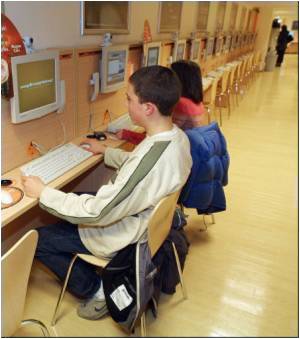An Australian psychologist says that with the rise of smartphones, parents are finding it difficult to monitor teenagers' use of technology, driving the latest wave of cyber-bullying.

She followed 700 Victorian school students from year 7 to year 9, asking them anonymously whether they had teased, threatened, spread rumours about or excluded other children either in person or using a computer or phone.
She found 15 per cent of the teenagers had been involved in cyber-bullying, fewer than the 21 per cent who confessed to having bullied others in person.
But there was little overlap between the groups, with only 7 per cent of students engaged both in face-to-face and cyber-bullying, Professor Hemphill found.
She said this might be a result of ''anonymity and the perception that this form of bullying was less likely to be detected. Cyber-bullying may also rely on different forms of power'' related to technology skills rather than physical dominance.
It was also possible, she said, that teenagers might act impulsively online because they were remote from the distress caused by their behaviour.
Advertisement
Many authorities, including the federal government's Stay Smart Online initiative recommend parents keep computers in the family room so children's internet activity is visible.
Advertisement
''There have been ideas about how much monitoring parents should do ... but now with smartphones they really can't be there all the time,'' Professor Hemphill stated.
In contrast to traditional bullying, Professor Hemphill's survey, published this week in the Journal of Adolescent Health, found cyber-bullying was not linked to disrupted family background or poor school performance.
She hopes to conduct further research into characteristics of individual children or situations, including whether group dynamics affect the likelihood of bullying as online devices become more prevalent.
Source-ANI








